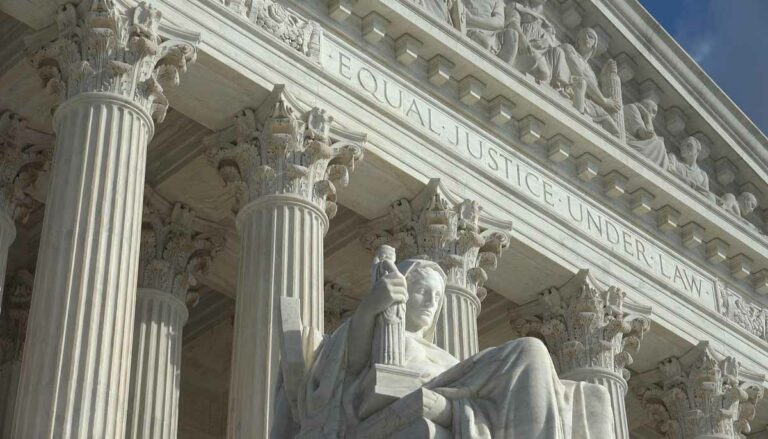On Tuesday, the Supreme Court will take up a landmark case involving voting rights in Arizona. The case, in which voting rights advocates from the Southwestern state allege that lawmakers are disenfranchising minority voters, is expected to set a precedent that will define voting rights battles going forward. Additionally, court commentators have noted that the case will be a serious test of the Voting Rights Act, a landmark piece of Civil Rights legislation that was scaled back significantly in 2013 by the Supreme Court.
Democrats, who largely charge that the Arizona state legislature is overstepping its bounds with the voting laws in their state, fear that the Conservative-controlled Supreme Court is gearing up to deliver Republican state legislatures carte blanche to pass voting laws that disenfranchise minorities. Voting rights advocates have accused Republicans of encouraging low voter turnout as a way to make it more likely their candidates win. Should the conservatives on the bench agree with Arizona, their 6-3 majority will make the case a landslide.
What Laws are at Issue?
Two Arizona laws are in virtual oral arguments before the Supreme Court. The first one holds that voting authorities need to toss out ballots that are cast in the wrong precinct. The second is directly related to mail voting and holds that, after a ballot is completed, only the voter themselves, a family member, or a caregiver can collect and deliver it to the ballot drop-off.
“Prohibiting unlimited third-party ballot harvesting is a commonsense means of protecting the secret ballot,” the state wrote in court filings. Notably, there has never been any instance of widespread mail-in voting fraud in the United States. Voting by mail is considered by non-partisan voting rights groups to be safe and secure in the United States.
What’s Wrong With These Laws?
Arizona Democrats argue that, while these laws seem benign on their face, they’re actually just attempts to make it harder for minority voters’ ballots to be counted. They point out that the law throwing away ballots cast in the wrong precinct, which sounds reasonable, is actually a solidification of something that already happens eleven times more often in Arizona than any other state.
Democrats have accused the state’s election authorities of setting up ballot collection boxes in minority-populated areas in ways that are intended to cause confusion, resulting in much higher numbers of ballots being accidentally filed in the wrong precinct. This, they argue, is just an excuse to not count minority votes, votes that are often for Democratic candidates.





